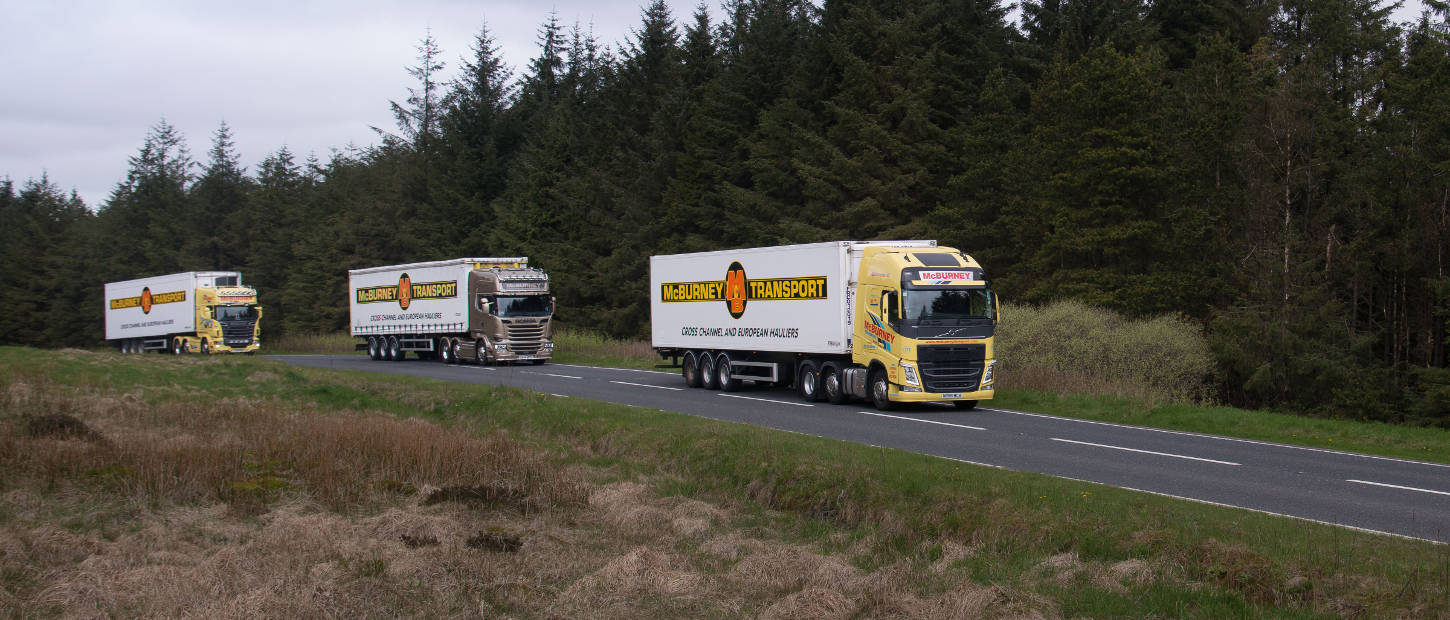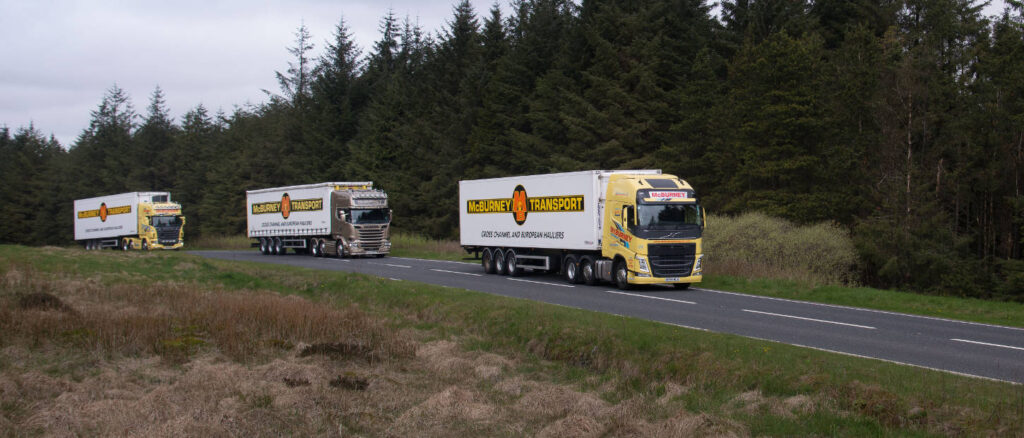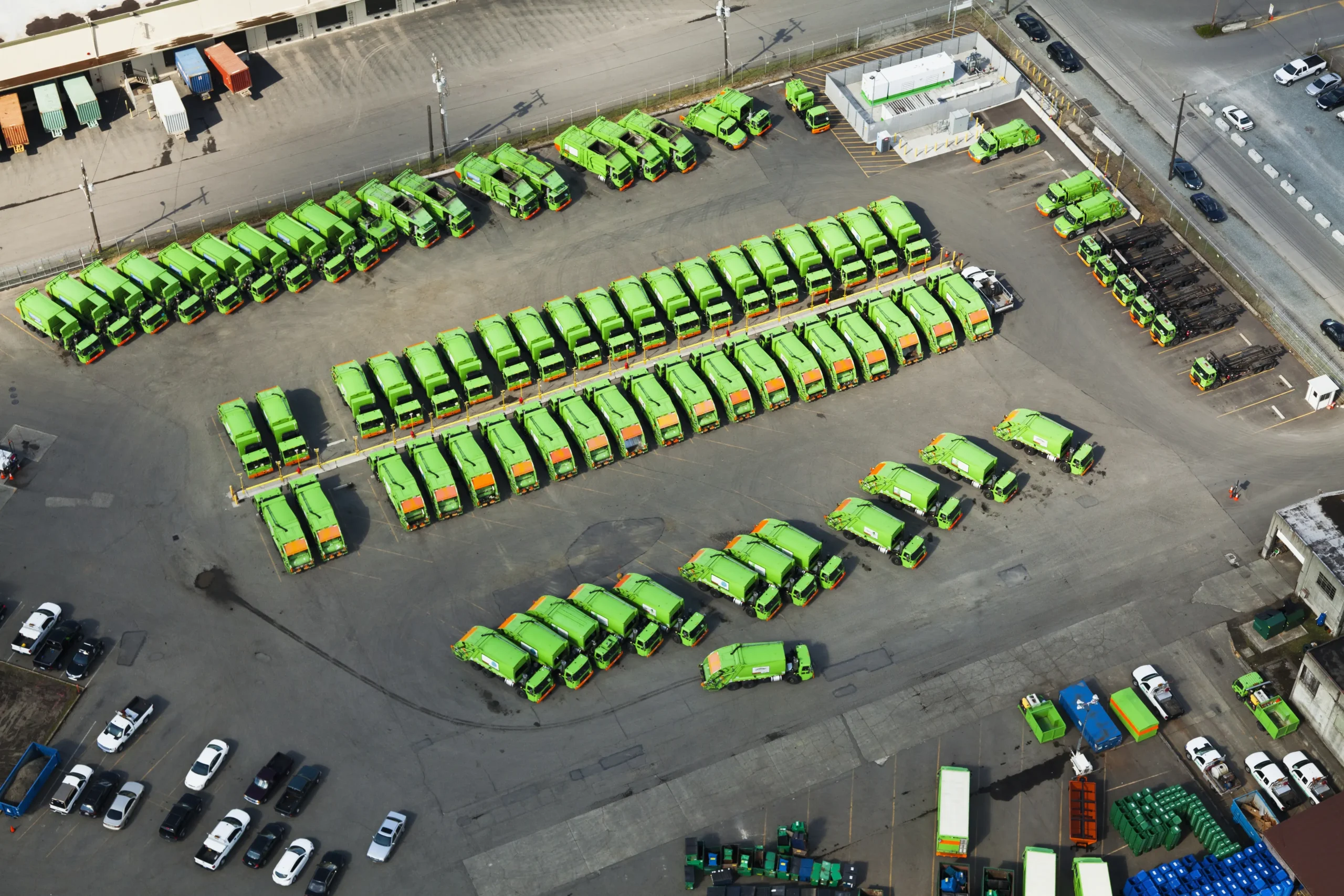This month’s edition features an extended piece on Rivian’s custom made electric vans for Amazon, alongside articles featuring Geely, Electra and McBurney Transport Group, as the industry continues to find inventive ways to harness green energy.
How Rivian’s Electric Vans Have Changed Amazon Deliveries

Amazon Rivian Delivery Van. Source: Amazon
Since Amazon invested more than $1.3 billion in Rivian, as part of strategic partnership between the two companies, they have deployed over 1000 electric delivery vans across the U.S, delivering over 5 million packages in the process. Aside from cutting carbon emissions, Rivian’s custom made vans have been innovated to improve the overall day-to-day delivery experience for their drivers, with a focus being placed on safety and efficiency. CNBC followed one of Amazon’s delivery drivers for a day and interviewed associates to the process to gain insight into how the van has evolved from their previous sprinter models.
Safety has become the number one priority for Amazon after a ProPublica report found that Amazon’s contract drivers were involved in more than 60 serious crashes from 2015 to 2019, at least 10 of which were fatal. Amazon’s brand new Rivian electric delivery vans have been kitted out with a range of technologies to make delivery day safer for their drivers.
They’re now equipped with numerous cameras, both inside and outside of the vehicle. Interior driver-facing cameras track driver behaviour and are monitored by Amazon to ensure that drivers are meeting their expected safety behaviours, such as wearing a seatbelt and obeying traffic laws.
Cameras and sensors outside of the vehicle link to the vehicle’s tablet to create a 360 view of the vehicle’s surroundings, and aid its complex lane assist technology, which vibrates the steering wheel if the vehicle is close to an external object. Both are ideal for deliveries in tight urban environments where parking spaces are limited and children may be in the vicinity.
Speaking to CNBC, Beryl Tomay, Vice President of Last Mile for Amazon further elaborated on the effect it has had to Amazon’s driver safety statistics:
“We’ve seen over the past year a reduction of 80% to 95% in these events when we’ve warned drivers real-time. But the really game-changing results that we’ve seen have been almost a 50% reduction in accidents.”
These new safety features are in addition to other quality of life improvements that improve the efficiency of the driver and ultimately streamline the delivery process.
The vehicle has automatic locking and unlocking features when the driver is 15 feet away from the vehicle so that the driver can focus on quickly moving in and out of the vehicle when their hands are occupied by packages.
Due to an increase in pet-related assaults on their drivers, Amazon have included a ‘notes’ feature in their delivery app, so that drivers can inform their fellow co-workers of any hazards, complexities or general instructions against specific addresses.
Geely Reveal Ambitious Plans to Electrify London’s Famous Black Cabs
Reuters reported that Geely have ambitious plans to transform London’s ubiquitous black taxis to electric, through investment in the London Electric Vehicle Company (formerly the London Taxi Company).
The Chinese automotive manufacturer intends to create an extensive zero-emission product portfolio through LEVC that includes a range of high-volume, all-electric commercial and passenger vehicles that expand on their current plugin-hybrid models.
This expansion of their product range is in addition to evolving LEVC’s service offerings, such as creating a system whereby the vehicles schedule their own maintenance in order to reduce downtime and the reliance on manual processes.
Geely’s executives have stated that the official figure for the investment would be disclosed at a later date, reaffirming their commitment to the London Electric Vehicle Company after purchasing the manufacturer outright in 2013. Geely have invested over £500m since:
“Geely fully supports the new transition strategy laid out by LEVC’s board and executive team.” – Geely.
McBurney Transport Group fits 146 trailers with solar panels following successful trial

McBurney Transport Group Trailer. Source: McBurney Transport Group
McBurney Transport Group announced that following a successful one-year trial testing solar panels on their refrigerated trucks, they plan to install 146 trailers with the sustainable technology. The solar panels supply energy to the vehicle’s fridge in order to reduce cost and emissions.
McBurney Transport Group calculated the fridge battery’s related costs and the benefits of using solar power to charge it.
The primary aim of the trial was to test the solar panels in wintery conditions to see whether or not they functioned efficiently when there’s limited sunlight, and to see if they could withstand harsh weather conditions.
The results disclosed that the solar panels can harvest enough sunlight even in winter to succinctly charge the fridge for an entire journey. Sammy Hamill, McBurney Transport Group fleet transport manager, stated:
“This is just another example of how we have worked closely with Genie Insights to improve the performance of our fleet and uptime for our customers, which is ultimately what we are always striving towards as a business. We also like to be at the forefront of trialling new technologies, and we were surprised to see how such a simple and cost-effective solution could provide the answer to the battery related issues we know are becoming increasingly common in the refrigerated transport industry.”
Electra’s Refrigerated eCargo Truck Completes Successful Trial with Sainsbury’s
Electra Commercial Vehicles successfully concluded a three-month trial with Sainsbury’s to test their refrigerated eCargo Fuel Cell Electric Vehicle (FCEV). The trial took place across the Tees Valley – the FCEV embarked on a 208 mile journey from Sainsbury’s Sherburn in Elmet depot to their Newcastle depot.
The switch from a diesel-powered truck to a zero-emission hydrogen-powered truck saved 314 kg of CO2 per journey, contributing to Sainsbury’s Net Zero by 2035 target. Sid Sadique, founder and chairman of Electra Commercial Vehicles, reflected on the success of the trial and the progress that the company is making in the space:
“I am thrilled with the truck’s performance during its tour in the Tees Valley area. Seeing something that was just a vision for the future on paper over a year ago now becoming a reality is fantastic. It again demonstrates how Electra is the undisputed leader in net-zero road transport transition, taking the UK and Europe another step closer to reaching their critical decarbonisation ambitions. We will now bring fully operational hydrogen trucks onto our roads in 2023, as well as further building on the success of our electric ranges.”








